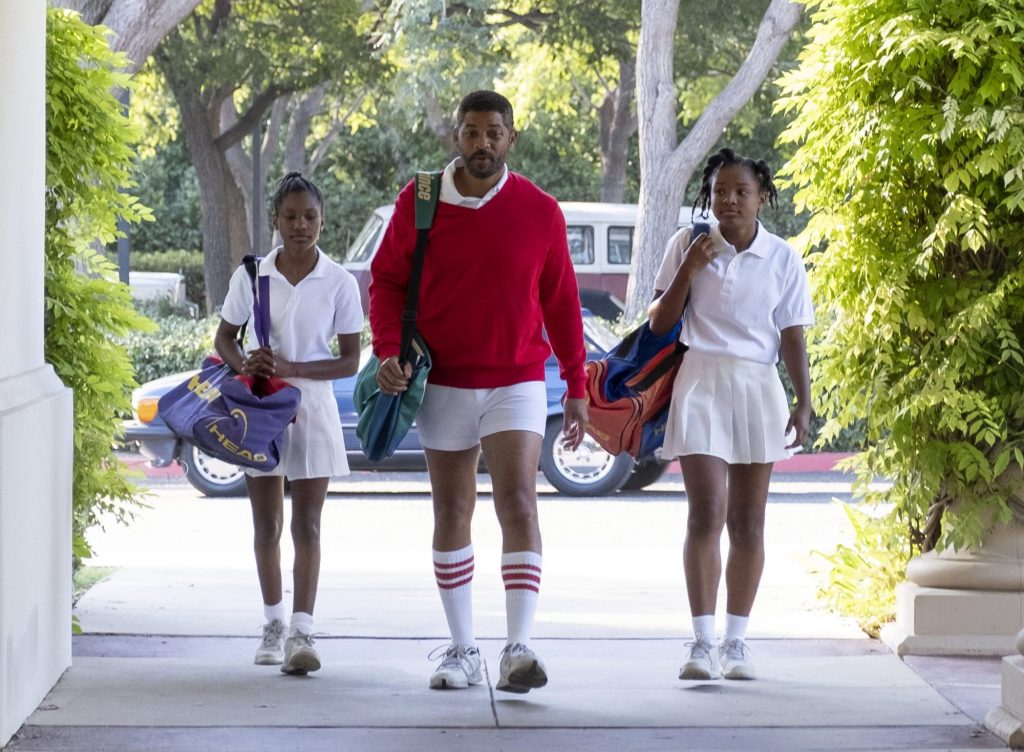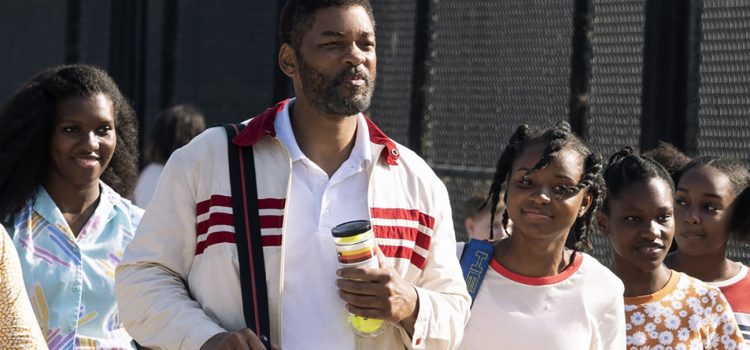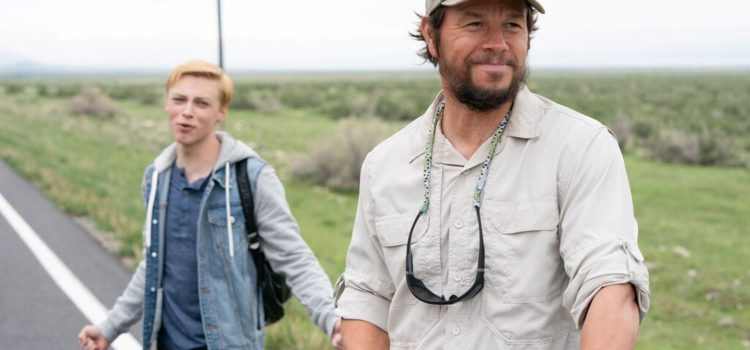By Lynn Venhaus
Anyone’s journey on how we become who we are can be turned into a compelling narrative in the right hands, and while the remarkable life story of tennis superstars Venus and Serena Williams is tailor-made for a Hollywood adaptation, not every inspiring sports champion transfers well to screen.
However, “King Richard” has the right blend of drama and action to be fascinating – and for 2 hours and 18 minutes, that’s quite an achievement.
Richard Williams developed a 78-page plan for his daughters, Serena and Venus, to become championship tennis players. The father coached the girls while he worked as a security guard, and they played on the public tennis court in their Compton neighborhood. They would become superstars and dominate the sport.
Making the sisters’ fierce taskmaster and protector father, Richard, the centerpiece was absolutely the right move – and hinges on a deftly modulated performance from Will Smith.
After a disappointing string of box office duds, Smith is back in championship acting form – not just a movie star cavorting in front of green screens. His masterful portrayal of the complicated and driven patriarch is his comeback to awards season discussion, and may result in his third Oscar nomination, not since “The Pursuit of Happyness” in 2006.
He nearly disappears into the obsessively focused dad role wanting a better life for his children, molding his kids through methods he conceived, abrasive about status differentials and always being on the outside looking in as a black man in America. He nailed Richard’s dialect (he grew up in Louisiana) and his shape, gaining weight to physically mimic a big, strong guy.
Richard’s tennis-loving daughters Venus and Serena were eager pupils – and dreamers. Under his tutelage, they learned how to develop minds of a champion, not just the exceptional athleticism.
Young actresses portraying the sisters easily win us over – Saniyya Sidney, 15, as eldest Venus, the family’s first competitive and tournament-bound player, and Demi Singleton, 14, as powerful younger up-and-comer Serena.
They capably show us the hearts and minds of the prodigies-turned-pro, and it’s an interesting progression into to the trailblazers they became.
The sisters’ well-documented steely determination remains impressive. Any casual sports fan knows of the Williams girls’ impact on tennis. The numbers (shown over the credits while Beyonce sings “Be Alive”) are testament: a combined 30 Grand Slam titles, with Serena’s 23 singles titles only one behind the record, and four Olympic medals.
Screenwriter Zach Baylin concentrated in equal measures on family life and competition, and details rising star Venus’ advancement in the sport, leading to her turning pro at age 14. We don’t get past the mid-90s, with Oracene eventually divorcing Richard, the girls racking up big wins and endorsements, — and is minus any tennis feuds or controversies.
Director Reinaldo Marcus Green adroitly unfolds the challenges the Williams faced from the streets of South Central L.A. to the pristine upper-echelon scenarios and the daunting majors. But he also works in the close-knit family’s playfulness.
The competitive tennis action is very realistic, making you feel you are getting an authentic depiction of tennis matches on courts in neighborhoods, country clubs, training camps and Grand Slam tournaments. Cinematographer Robert Elswit handled the challenges superbly – and the young actresses used the Williams’ trademark open stance.
Aunjanue Ellis excels as Oracene “Brandi” Williams, the supportive mom who holds her own with Richard and the kids, as there were her three other daughters Yetunde, Isha and Lyndrea Price). The warm portrayal of the family unit adds a heartfelt element.
As larger-than-life tennis coach Rick Macci, Jon Bernthal lays on a thick New Jersey accent, an intense attitude, and is good at being exasperated by a tough Richard – as they are both hell-bent on doing it their way. Macci runs the tennis academy in Boca Raton, Fla., where the Williams’ trained after moving from California.
Tony Goldwyn portrays the practical Paul Cohen, who coached John McEnroe, Pete Sampras, and other pre-eminent pros, as a straight shooter. Cohen was the first coach who took on the girls after their dad realized they had to reach another level.
Both Cohen and Macci recognized the Williams’ sisters’ talent and groomed them to become pros while tussling with their dad. Their perspective is necessary to key components in the coming-of-age story.
The crowd-pleasing movie has all the beats of a good sports biopic and features the acting skills to captivate.
“King Richard” reminds us of how much hard work goes into becoming professional athletes and the against-the-odds obstacles the Williams’ faced and overcame. It’s easy to forget all the doors that Venus and Serena opened for other girls – and this film honors their father’s vision.

“King Richard” is a 2021 sports biopic directed by Reinaldo Marcus Green and starring Will Smith, Aunjanue Ellis, Saniyya Sidney, Demi Singleton, Tony Goldwyn and Jon Bernthal. It is rated PG-13 for some violence, strong language, a sexual reference, and brief drug references and runs 2 hours, 18 minutes. It opens in theaters and streams on HBO Max beginning Nov. 19. Lynn’s Grade: B+

Lynn (Zipfel) Venhaus has had a continuous byline in St. Louis metro region publications since 1978. She writes features and news for Belleville News-Democrat and contributes to St. Louis magazine and other publications.
She is a Rotten Tomatoes-approved film critic, currently reviews films for Webster-Kirkwood Times and KTRS Radio, covers entertainment for PopLifeSTL.com and co-hosts podcast PopLifeSTL.com…Presents.
She is a member of Critics Choice Association, where she serves on the women’s and marketing committees; Alliance of Women Film Journalists; and on the board of the St. Louis Film Critics Association. She is a founding and board member of the St. Louis Theater Circle.
She is retired from teaching journalism/media as an adjunct college instructor.



